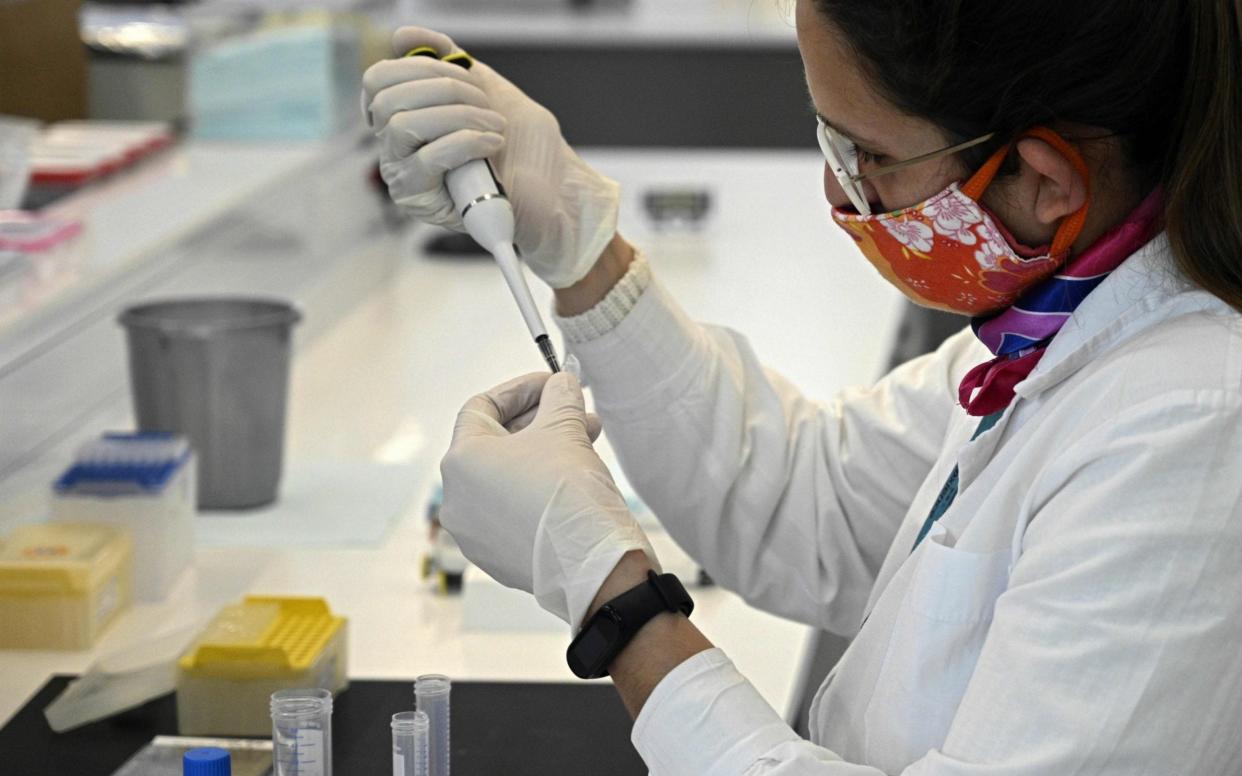Covid vaccine hopes boosted as study finds immunity could last for years


Immunity to coronavirus lasts at least eight months and may even last for years, new research suggests.
A study of 185 Covid survivors looked at multiple types of immune cells, including those that store the "memory" of the virus, that can activate antibodies when they encounter a new threat.
The study, led by scientists at the La Jolla Institute for Immunology, part of the University of San Diego, is one of the largest so far, assessing several elements of the immune response including antibodies and T-cells.
It found that the "immune memory" may last for at least eight months after infection, with researchers saying the slow rate of decline in some cells required for immunity could mean it lasts longer.
The study raises hopes that the protection conferred by Covid vaccines could last for years instead of an annual jab being required.
Shane Crotty, a virologist at La Jolla, told The New York Times: "That amount of memory would likely prevent the vast majority of people from getting hospitalised disease, severe disease, for many years."
A number of different papers have recently suggested that immunity may wane in as little as three months, raising questions about how effective any vaccine campaign may be.
Last month, a study of antibodies found they fell by about a quarter in just three months – but more recent research on T-cells was far more optimistic, suggesting a response may last for months.
Scientists said the new findings were even more hopeful, as they suggest it is possible that the "immune memory" could be triggered years later.
In the new study, posted ahead of a peer review as a pre-print on medRxiv, researchers took periodic measurements of the levels of antibodies as well as memory T and B-cells and other immune cells in the body. The research involved 185 Covid survivors, including 41 who were tracked for more than six months.
The T-cells – the immune component that both kills off cells that have been infected and helps B-cells make antibodies – was found to still be present at six months. Almost all the survivors developed memory B-cells that were capable of creating new antibodies if they encountered coronavirus again.
The research found the longer term form of antibodies, known as immunoglobulin G (IgG) only showed "modest" declines at the six to eight month marks.
Scientists have previously raised fears that those who develop only mild infections would be unlikely to have a strong immune response, making them vulnerable to repeat infections. But significantly, 92 per cent of those studied only had mild infections, never needing to be hospitalised.
Scientists said that could mean that even if people suffered a repeat infection it was likely to be mild or asymptomatic.
Stephen Evans, professor of pharmacoepidemiology at the London School of Hygiene and Tropical Medicine, said the findings could have "major consequences".
He said: "Firstly, although most of the cases described here had mild disease, it looks as though their immunity to a second infection is reasonably high. Most infections do lead to mild disease, especially in middle-aged and younger people.
"This means that the population level of immunity may be rising, which will eventually lead to reduced transmission. This, coupled with immunity being conferred by vaccination, offers prospects of transmission of the virus being markedly reduced over the next year or so.
"Secondly, it is probably very good news for vaccines also being able to provide immunity that is more than very short-term. We do not know that for certain yet, but it is encouraging."
Lawrence Young, professor of molecular oncology at the University of Warwick, said: "The significant take home message is that the immune response to the virus is more long-lived than previously thought, and this lets us continue to hold hope that an effective vaccine will be able to induce sustained protective immunity."

 Yahoo News
Yahoo News 
